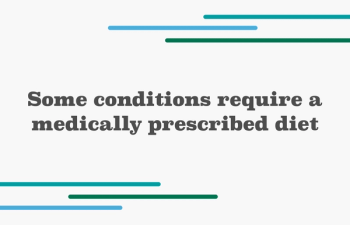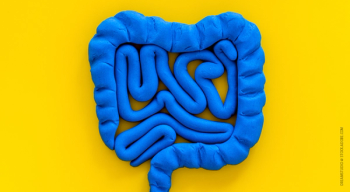
Different therapy techniques, including careful exposures, can help children with food allergies overcome crippling anxiety over allergic reactions, according to a new report.

Different therapy techniques, including careful exposures, can help children with food allergies overcome crippling anxiety over allergic reactions, according to a new report.

An updated clinical report from AAP reviews whether breastfeeding can prevent certain allergies, and how early peanut feeding can help prevent a peanut allergy.

Food insecurity has been tied to obesity, but little is known about whether this link extends to infants. A new study looks at whether this connection holds.

Introducing foods is a milestone in every infant’s life, but are practitioners giving the best advice to uncover any food allergies? A survey study provides some answers.

The Healthy, Hunger-Free Kids Act of 2010 was supposed to improve the dietary quality of the school lunch. An investigation may be able to finally provide an answer.

The 2017 guideline update represented a paradigm shift in tackling peanut allergies. An investigation takes a look at how well pediatricians have implemented the change.

Severe iodine deficiency in pregnancy has been linked to intellectual disabilities in offspring. An investigation studies whether the same is true for mild-to-moderate deficiency.

Immunotherapy has shown promise in treating peanut allergies. An investigation looks at whether similar results can be found when treating patients for wheat anaphylaxis.

A report examines whether children and adolescents who have severe obesity have differences in certain psychological and behavioral attributes than their peers.

Breastfeeding has many benefits and a new report indicates that it could helpful in reducing body mass index (BMI) in newborns at greater genetic risk for overweight and obesity.

Many young athletes are interested in resistance training, and a policy statement update from the American Academy of Pediatrics (AAP) addresses how they can safely participate.

Picky eating is an all-too-common hallmark of childhood. A new investigation looks at the impact of picky eating.

Children who have acute lymphoblastic leukemia (ALL) can reduce their risk of infection by consuming a diet rich in fruits and vegetable, according to a new 2-year cohort study.

Long-term counseling about diet can have a positive effect on adult cardiometabolic health, according to a new study.

Snacking isn’t bad for kids, but pediatricians should counsel parents on what snacks are best.

Baby-led weaning (BLW) is an alternate way to introduce infants to new foods at a developmentally appropriate age. Following some best practices can help ensure that BLW is a rewarding experience for parent and child.

A balanced diet is the cornerstone of lifelong physical and mental health. However, some children may have conditions that require a medically prescribed diet. Here’s a look at the medical indications and potential complications for some of them.

Traditional home economics classes that taught children about food and food preparation are a thing of the past in many schools. This loss can keep children and teenagers from exploring food and developing a strong, healthy relationship. A new program Food Ed. challenges to students to think about food beyond their plates.

Significant improvements in cystic fibrosis (CF) care have focused primarily on the pulmonary system, but addressing the gastrointestinal complications of CF presents a major opportunity for improvement in disease management.

Newborn infants with tongue-tie (ankyloglossia) are more likely to have severe breastfeeding problems than infants without the condition, according to an observational study carried out in Germany in newborn mother-infant pairs.

Eating well is fundamental to lifelong physical and mental health. Here’s how all your patients, even those with limiting medical conditions, can get their nutrient intake right.

The rising prevalence in childhood obesity increases the risk of teenagers and adolescents developing conditions linked to excess weight like type 2 diabetes, a condition long considered to be a disease for older people. A recent study in JAMA Pediatrics indicates that many adolescents and young adults have prediabetes, the stepping stone to type 2 diabetes.

Low-income pregnant women who receive Women, Infants, and Children (WIC) federal nutrition assistance reduce their offspring’s risk for infant mortality and premature birth.

A new study in the Journal of the Academy of Nutrition and Dietetics shows that 98% of toddlers and two-thirds of infants consume added sugars in their diets each day.

Pediatricians often focus on nutrition, but educating parents about food additives and safety should be included.